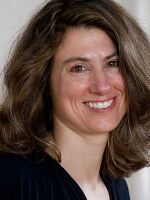I recently encountered a compelling question asked of one parent by another: “If my kid can’t bring peanuts to school, why should your kid be allowed to bring measles?”Here’s some context.
Often schools ban foods like peanuts to protect kids with sometimes lethal food allergies. But many states – including Vermont and Maine – allow families to enroll their kids in public school without immunizations because of religious or “personal philosophy” objections.
Un-immunized children can carry illnesses like measles that can be as deadly as food allergies, and Vermont and Maine have the lowest vaccination rates in New England, according to the Centers for Disease Control.
Some parents use personal belief exemptions because they believe vaccines cause autism. But medical organizations have disproven the autism link and assert that there is almost no risk associated with vaccines – especially compared to the risks associated with the illnesses they prevent.
Other parents believe that not vaccinating their children is simply a matter of personal freedom and parental rights.
Indeed, many argue that if un-vaccinated children were the only ones affected by preventable illnesses, then religious or personal philosophy exemptions from vaccines wouldn’t be an issue.
But there are kids and adults who can’t be vaccinated because their immune systems are compromised. Babies are simply too young to get vaccinated, but they’re highly susceptible to illnesses like measles, which as recently as 2000 was considered eliminated.
And as immunization rates have gone down, preventable illnesses have returned and spread.
This came to the forefront after un-vaccinated kids and adults mixed at California’s Disneyland in December.
More than 100 people from California and at least six other states contracted measles.
A father in Marin, California, one of the epicenters for the anti-vaccination movement,
Recently made national news by going around California’s personal philosophy exemption law and asking his local school board to prevent children who are un-vaccinated because of parental choice from entering public school. His son, a leukemia survivor, can’t be vaccinated.
He doesn’t want his son to risk exposure to a preventable illness.
But I don’t think parents should have to beg school boards to protect their kids from deadly illnesses.
The Vermont and Maine Legislatures are considering removing the personal belief exemption for enrollment in public schools. So far, Governor Shumlin does not appear to support changing the law.
Personally, I’d like to see parents who oppose vaccination exercise a different kind of freedom of choice and home-school their kids instead of putting public schoolchildren – and by extension the rest of us – at risk.




